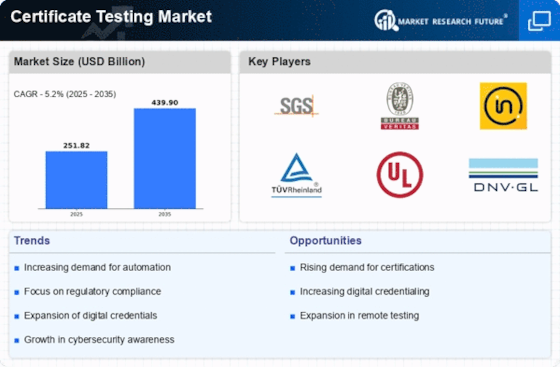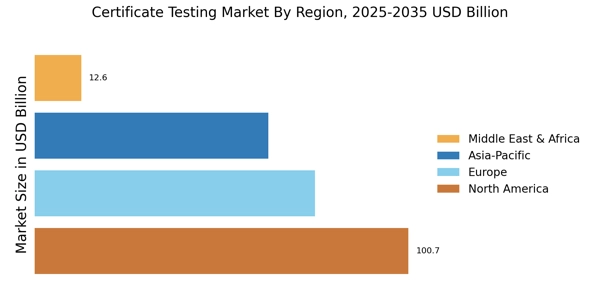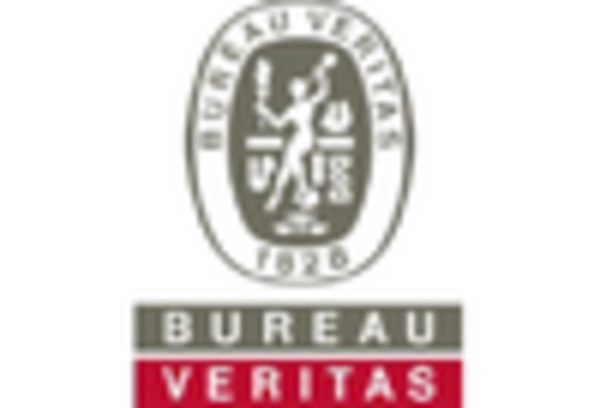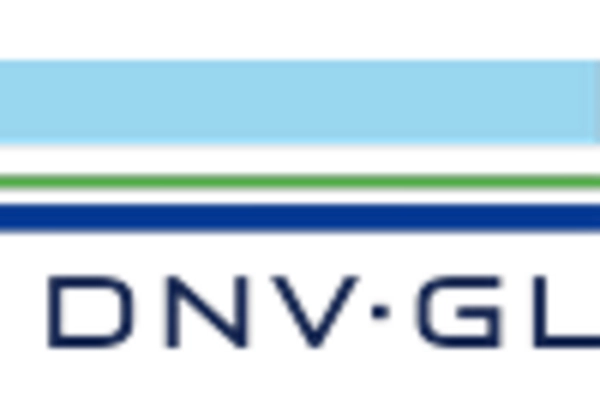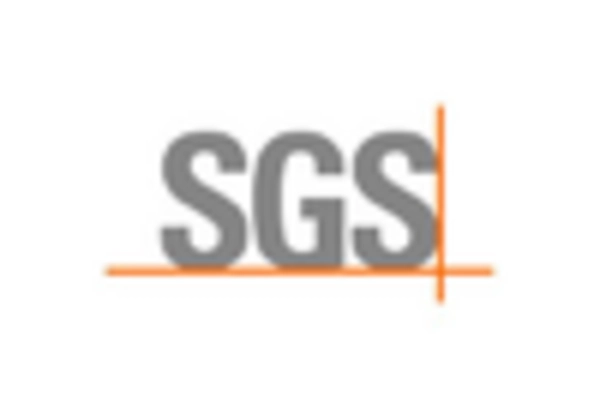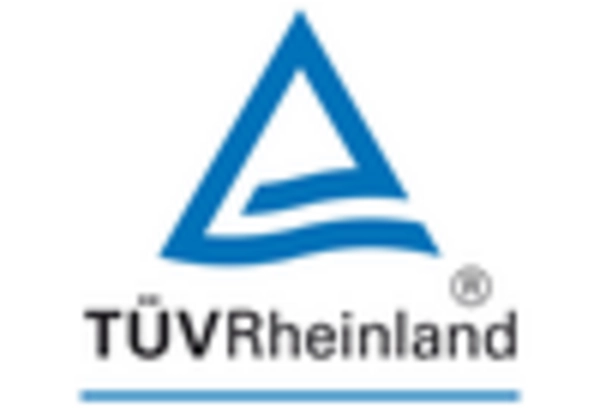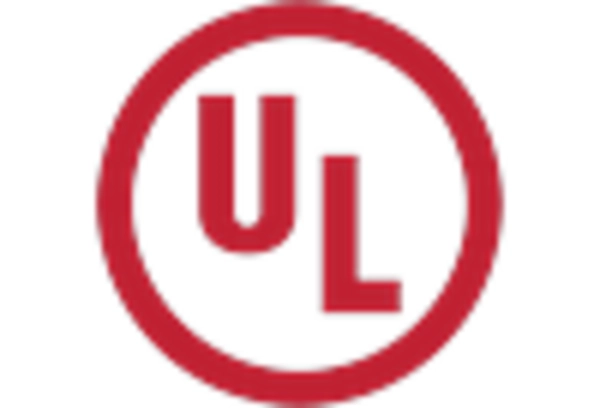Rising Cybersecurity Concerns
Rising cybersecurity concerns are becoming a pivotal driver for the Certificate Testing Market. As organizations increasingly rely on digital platforms, the threat of cyberattacks has escalated, prompting a heightened focus on cybersecurity testing. Companies are now seeking certification to validate their security measures and protect sensitive data. This trend is particularly relevant in sectors such as finance, healthcare, and information technology, where data breaches can have severe consequences. The demand for cybersecurity testing services is expected to grow, with market projections indicating a potential increase of 15% annually as businesses prioritize the safeguarding of their digital assets.
Increasing Regulatory Requirements
The Certificate Testing Market is experiencing a surge in demand due to the increasing regulatory requirements across various sectors. Governments and regulatory bodies are implementing stringent standards to ensure product safety and quality. This trend is particularly evident in industries such as pharmaceuticals, food and beverage, and electronics, where compliance with safety regulations is paramount. As a result, organizations are investing in certificate testing services to meet these requirements, thereby driving growth in the market. The market is projected to expand as more industries recognize the necessity of adhering to these regulations, which could lead to a compound annual growth rate of approximately 8% over the next five years.
Growing Awareness of Quality Assurance
There is a growing awareness of quality assurance among consumers and businesses alike, which is significantly impacting the Certificate Testing Market. As consumers become more informed about product quality and safety, they are demanding higher standards from manufacturers. This shift in consumer behavior is prompting companies to prioritize certification and testing to build trust and credibility in their products. Industries such as automotive, construction, and consumer goods are particularly affected, as they face heightened scrutiny regarding product quality. Consequently, the demand for certificate testing services is likely to increase, with market analysts estimating a potential growth rate of around 7% annually as companies strive to meet consumer expectations.
Expansion of E-commerce and Online Services
The expansion of e-commerce and online services is driving the Certificate Testing Market in unprecedented ways. As more businesses transition to online platforms, the need for certification to ensure product authenticity and safety has become critical. E-commerce platforms are increasingly requiring sellers to provide proof of compliance with safety standards, which in turn boosts the demand for certificate testing services. This trend is particularly pronounced in sectors such as electronics, fashion, and health products, where consumers are concerned about counterfeit goods. The market is projected to grow significantly as e-commerce continues to flourish, with estimates suggesting a potential increase in market size by over 10 billion dollars by 2028.
Technological Advancements in Testing Methods
Technological advancements are playing a crucial role in shaping the Certificate Testing Market. Innovations in testing methodologies, such as the integration of artificial intelligence and machine learning, are enhancing the accuracy and efficiency of testing processes. These technologies enable faster data analysis and improved predictive capabilities, which are essential for meeting the evolving demands of various industries. Furthermore, the adoption of automated testing solutions is likely to reduce operational costs and time, making certificate testing more accessible to a broader range of businesses. As organizations increasingly seek to leverage these advancements, the market is expected to witness substantial growth, potentially reaching a valuation of several billion dollars by 2027.

